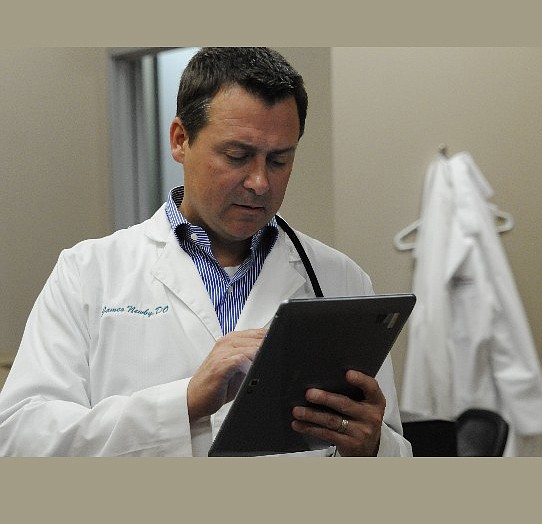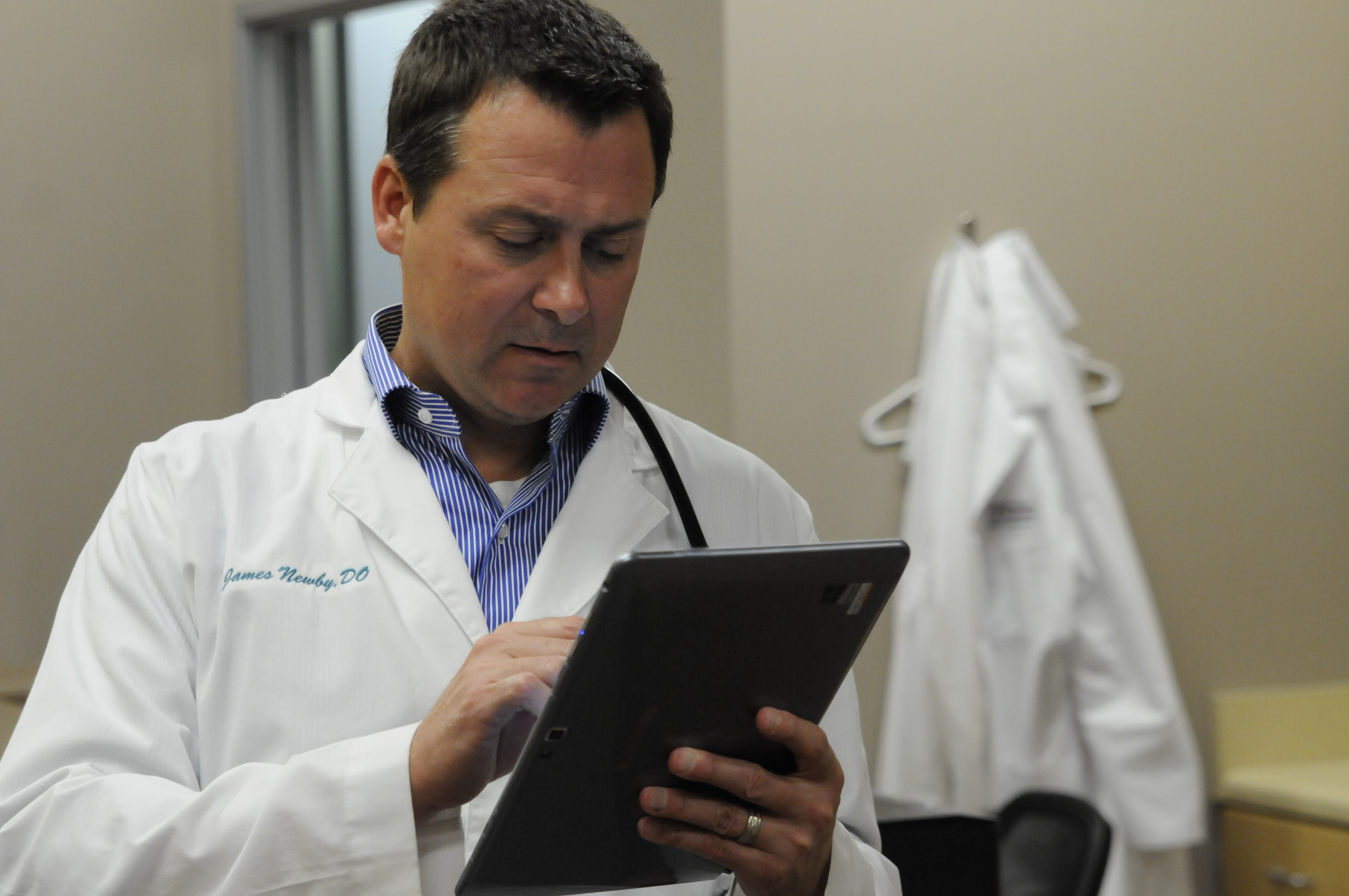PROJECTED GROWTHU.S. RETAIL CLINICS2012 1,418 total clinics2013 1,7432014 2,2432015 2,868Source: Accenture: Insight Driven Health
A handful of new urgent-care, walk-in medical clinics have opened in the Chattanooga area this year, part of a nationwide resurgence in quick-care popularity that is expected to double the number of retail clinics in the United States by 2015.
Retail clinics are primed to carve out a strong niche in today's health care environment, in part because of the surge in newly insured people that the Affordable Care Act will create and in part because Americans are increasingly focused on convenience and speed.
A study released last week by global consulting company Accenture predicts that the number of health clinics will grow by 25 to 30 percent annually for the next two years and will be able to accomodate 10.8 million patient visits annually by 2015.
In the Chattanooga region, a group of Cleveland, Tenn., businesspeople opened three new urgent care clinics in March. And in the next five years, the group, DX Management, wants to aggressively expand their Doctors Express locations, said principal Jack Fromm.
"We'd be disappointed if we weren't at 20 or more in the general region," he said. "We could reach up to Knoxville and down into North Georgia."
The existing Doctors Express sites in Hixson, Chattanooga and Cleveland can handle urgent care, X-Rays, lab work, immunizations -- almost anything that's not life-threatening, he said. The clinics always have a physician on-site and pitch themselves as a faster, cheaper option than the emergency room during nonbusiness hours or weekends.
So far, business has been good, Fromm said.
"Better than expectations," he said. "And really that's an indication that there was a need for our type of service."
That need will only get stronger when the Affordable Care Act pumps millions of newly insured people into the market, according to Accenture. Retail medical clinics, often considered a competitor to primary care providers and hospitals, may become a critical release valve to help ease the added load of patients.
"Now, the very clinics once perceived as rivals may represent a key tool for managing patient volume while more conventional health providers focus on higher acuity and more complex treatments," the Accenture report reads.
Doctors Express aren't the only ones planning a rapid expansion. CVS/pharmacy's MinuteClinics are also popping up across the country. The company has added 200 MinuteClinics, which are staffed by nurse practitioners and physician assistants, during the last two years, and plans to open another 150 during 2013.
A new MinuteClinic in Hixson opened in May and CVS expects to have 1,500 MinuteClinics open by 2017 said spokesman Brent Burkhardt.
"We face mounting supply and demand issues in primary care and critical changes in our healthcare system," said Andrew Sussman, president of MinuteClinic, in a prepared statement. "Massachusetts has already implemented some of the reforms and provides a picture of what we might expect. Despite having the highest number of primary care physicians per capita, wait times for primary care physician appointments continue to rise. Massachusetts is one of our fastest growing MinuteClinic states."
Rae Bond, executive director of the Chattanooga-Hamilton County Medical Society, said that in addition to the continued growth of quick-care facilities, she also expects to see traditional primary care providers make changes to handle the influx.
"I think you will see both more of the quick care, but also a movement for pediatric care and primary to expand hours and become even more accessible," she said. "You'll see more practices adding some physician extenders like physician assistants or nurse practitioners and working to be more flexible in their scheduling."
It's important, she added, that patients don't use places like MinuteClinics or Doctors Express to replace their primary care physician.
"There is huge value in having a standard primary care home," she said. "Especially for pediatrics, they have your records, they know what your medicine allergies are -- if you split your medical care between offices, it's going to be a lot more difficult to keep up with the details of the care you're receiving. One of the dangers of these quick care places is that it can really interrupt that continuity of care."
Fromm said the goal of Doctors Express is to work with primary care providers.
"Because there is a shortage of physicians, especially in a family practice, they're blown away by the work they have to do," he said. "So we want to be a solution. We want to work hand-in-hand with primary care physicians."
But in order for this type of hand-in-hand cooperation to happen, the way primary care providers and retail clinics interact will have to change dramatically from the last few years, the Accenture study highlights.
After several years of growth, the number of new retail clinics stalled in 2009 and has remained basically flat until this year, the study found. Clinics saw low patient volumes and most primary care providers failed to refer patients to retail clinics.
"This was no accident," the study reads. "Until recently hospitals and primary care providers widely regarded the clinics as a major threat to their business models and worked hard to undermine the new clinics' public standing."
Bond said she sees the potential of quick care facilities, but added that the quality of care varies from place to place.
"Our big concern is continuity of care, and that you have the appropriate level of care available to you," she said.
Fromm said he thinks having a physician on-site whenever a Doctors Express location is open sets the clinics apart from places like CVS's MinuteClinics and ensures that the quality of care is high.
"We want to be the after-hour solution, the work-in solution," he said.
"We can be the weekend solution, and we'll communicate all that information back to the primary care provider."
Contact staff writer Shelly Bradbury at sbradbury@timesfreepress.com or 423-757-6525.

